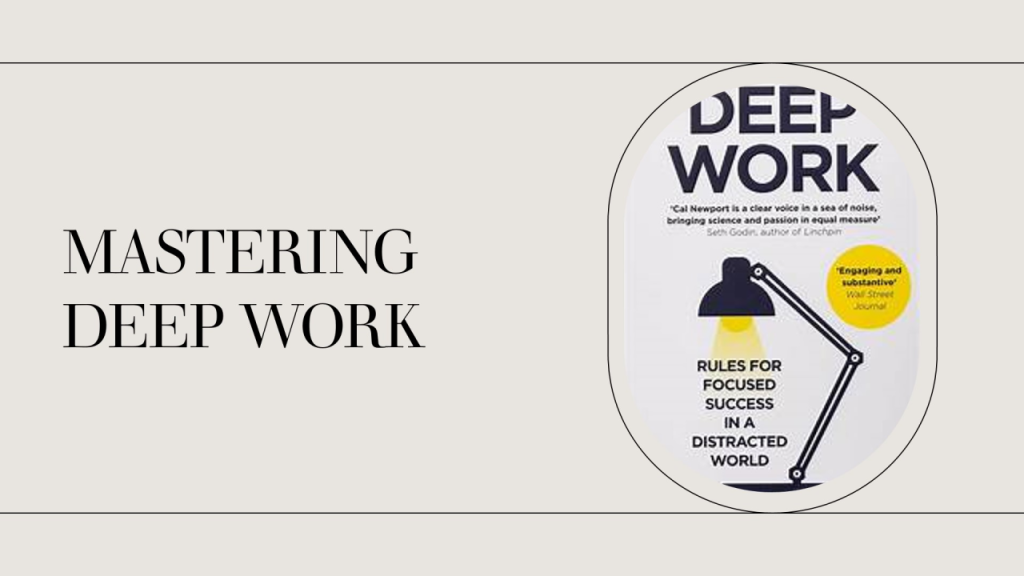
Cal Newport’s concept of “deep work” – the ability to focus without distraction on cognitively demanding tasks – has become increasingly rare yet valuable. Research from the University of California Irvine found that it takes an average of 23 minutes to refocus after an interruption. These strategies help cultivate this crucial skill in our distraction-filled world.
The Neuroscience of Deep Work
Why focused work matters:
- Myelin formation: Repeated focus strengthens neural pathways
- Flow state triggers: 90-120 minutes of focus often induces peak performance
- Cognitive load theory: Working memory has limited capacity
- Attention residue: Task-switching leaves mental “leftovers”
Creating Deep Work Rituals
Structures that support focus:
- Location: Designated distraction-free zone
- Duration: 90-120 minute blocks (aligned with ultradian rhythms)
- Rules: Clear protocols (no internet, phone in airplane mode)
- Supplies: Everything needed within reach
Eliminating Digital Distractions
Research-backed tactics:
- Website blockers (Freedom, Cold Turkey)
- Separate user account for work (no personal logins)
- Physical notepad for random thoughts
- Scheduled email checking (not constant monitoring)
Building Focus Stamina
Like any skill, deep work requires training:
- Start with 25-minute sessions (Pomodoro technique)
- Gradually increase focus periods
- Track deep work hours weekly
- Reward sustained focus
A 2023 MIT study found that knowledge workers who practiced deep work for just 5 hours weekly produced output equal to colleagues working 20+ distracted hours. In our increasingly distracted world, the ability to focus deeply has become a superpower that creates disproportionate professional advantage.



